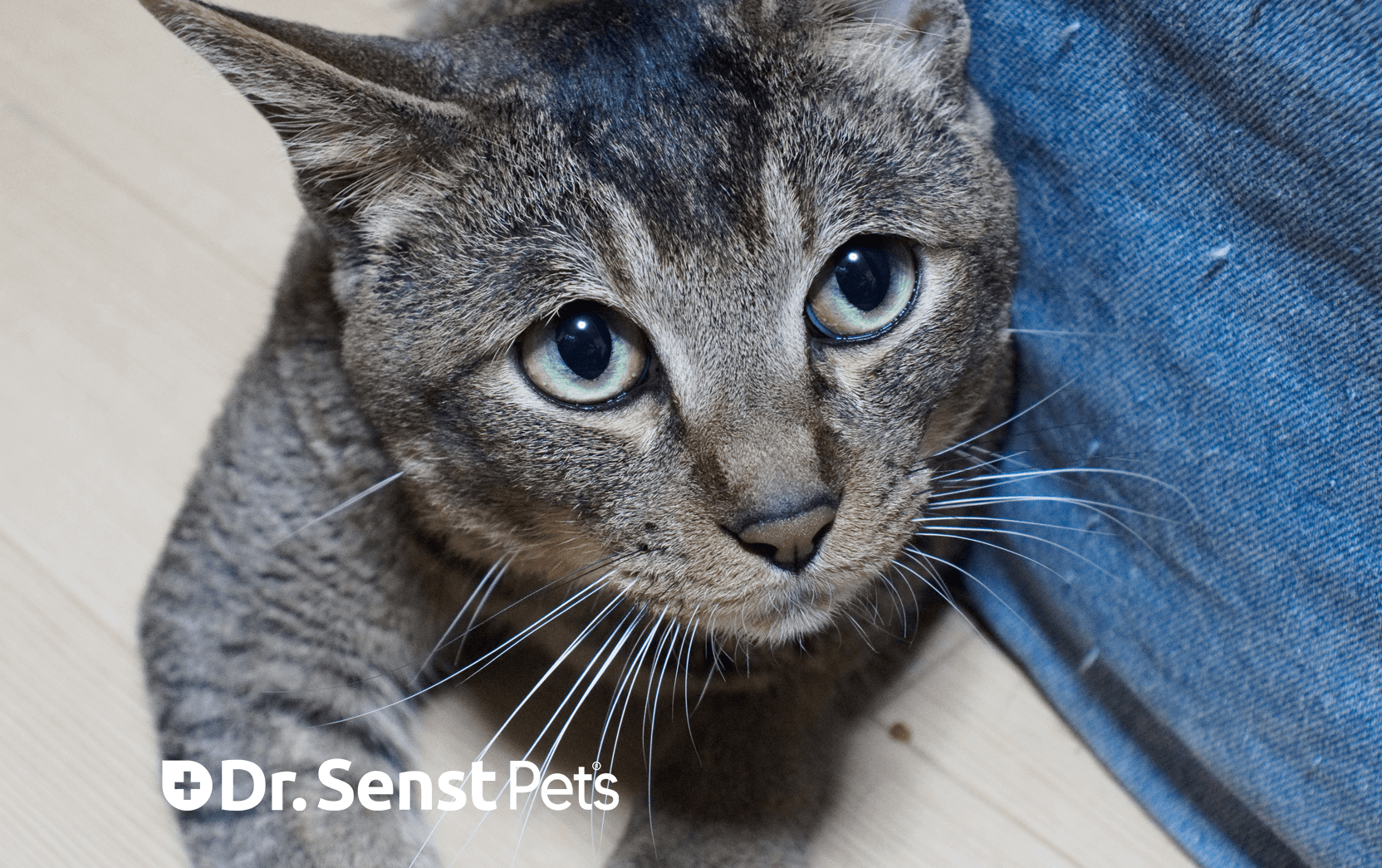
- by Dr.Thilo Senst
Top Supplements for Cats with Itchy Skin: Allergy Relief Guide
- by Dr.Thilo Senst
Top Supplements for Cats with Itchy Skin: Best Solutions for Cat Allergy Relief
Cats, much like humans, can suffer from a range of allergies that result in itchy and irritated skin. Whether the cause is environmental, food-related, or a reaction to fleas, a cat with itchy skin can experience significant discomfort. For pet owners, finding the right cat allergy relief can be crucial in maintaining their cat's happiness and health. This article explores the best supplements for relieving itchy skin in cats, offering both natural and medically supported options to give your feline friend the comfort they deserve.
Before diving into the top supplements for cat allergy relief, it’s important to understand what causes a cat’s skin to become itchy. Common causes include:
Understanding the underlying cause is key to providing effective cat allergy relief. Supplementation plays a vital role in improving skin health and reducing inflammation.
Several supplements can help alleviate skin irritation in cats, addressing inflammation, allergies, and overall skin health. Below are some of the top recommendations:
Omega-3 fatty acids, particularly EPA and DHA, are powerful anti-inflammatory agents that can help soothe irritated skin. These essential fats can also improve the coat's shine and reduce shedding, making them a well-rounded supplement for overall skin and coat health.
Stat: Studies in the UK show that omega-3 supplementation significantly reduces skin inflammation in up to 60% of pets with chronic dermatitis【source: Royal Veterinary College】.
Gut health is closely linked to skin health. A well-balanced gut can boost the immune system, helping to manage allergic reactions. Probiotics, the “good bacteria” that live in the digestive system, can help strengthen your cat’s immune response and potentially reduce allergic skin reactions.
Quercetin is a natural plant-based flavonoid known for its anti-inflammatory and antihistamine properties. Sometimes referred to as "nature’s Benadryl," quercetin can help alleviate allergic reactions and reduce inflammation in the skin.
Vitamin E is a potent antioxidant that supports skin health by reducing oxidative damage and enhancing the skin's natural healing processes. It can be used topically or as an oral supplement to promote smoother, less irritated skin.
Stat: In the UK, around 25% of cats with dermatological issues have been shown to benefit from vitamin E supplements for allergy relief【source: UK Veterinary Dermatology Clinic】.
Borage oil is high in gamma-linolenic acid (GLA), a type of omega-6 fatty acid known for its anti-inflammatory properties. This supplement can help reduce itching and support healthier skin when given alongside omega-3 fatty acids.
Apart from supplementation, adjusting your cat’s diet is crucial to managing allergies. A hypoallergenic diet eliminates common allergens and provides nutrients that support skin health.
If your cat suffers from food allergies, switching to a hypoallergenic diet can alleviate symptoms. Hypoallergenic cat food typically contains limited ingredients and avoids common allergens such as beef, chicken, and grains. Look for formulas that focus on novel protein sources like duck or venison.
For cats sensitive to grains, a grain-free diet may reduce skin irritation. Many pet owners report improved skin condition when grains like corn and wheat are removed from their cat’s diet.
Along with adding supplements and improving diet, there are several home care tips that can help alleviate your cat’s itchy skin.
Brushing your cat regularly helps remove allergens like dust and pollen that can accumulate on their fur. It also stimulates the skin’s natural oils, promoting a healthy coat.
Using a gentle, hypoallergenic cat shampoo can help soothe irritated skin and wash away potential allergens. Look for shampoos specifically formulated for allergic cats.
Keeping your cat flea-free is critical, especially if they suffer from flea allergy dermatitis. Regular flea control treatments, such as Dr. Senst Antiseptic Flea Treatment For Cats, can help keep fleas at bay and reduce allergic reactions.
Stat: Flea allergy dermatitis is one of the most common causes of skin issues in cats, affecting 10-15% of cats in the UK【source: PDSA】.
It’s essential to treat cat allergies as soon as symptoms appear. Delaying treatment can worsen the condition and lead to secondary infections or chronic skin issues.
Prolonged scratching can lead to open wounds and secondary bacterial or fungal infections. These can complicate treatment and cause significant discomfort.
Cats with itchy skin often become anxious or distressed. Addressing allergies promptly can greatly improve your cat’s overall mood and well-being.
Q: Can I give my cat human allergy medication?
A: Never give your cat human allergy medication without consulting your vet. Many human medications can be toxic to cats, even in small doses.
Q: How do I know if my cat has food allergies?
A: Common signs of food allergies include vomiting, diarrhoea, and itchy skin. Your vet may recommend an elimination diet to pinpoint the specific allergen.
Q: How often should I give my cat supplements for itchy skin?
A: Always follow the dosing instructions on the product label or consult with your vet to ensure you're giving the correct amount.
When your cat is suffering from allergies, finding the right solution can make a significant difference in their comfort and happiness. By incorporating supplements like omega-3 fatty acids, probiotics, and quercetin into your cat’s daily routine, you can provide long-lasting relief from itchy skin and promote better overall health.
For those looking to maintain their cat’s skin health, products from the Dr. Senst Pets range offer targeted solutions. Dr. Senst Antiseptic Itchy Cats Spray is specifically designed to alleviate skin discomfort caused by allergies, while Dr. Senst Cat Calming Hemp Oil can provide additional relief for stress-related skin issues.
![]()
Enter your details & download our comprehensive 50+ page printable Dr. Senst Pet Care Planner completley FREE! - keep track of all your pet’s needs, from medical history and training to vet visits, grooming, diet, and more!










Share:
Feline Cataracts: How to Care for Your Cat’s Eyes
How to Spot a Tooth Abscess in Cats: Essential Cat Oral Care Tips